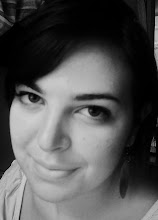 I was going through my music today and came across one of my favourite, highly talked about artists: Michael Jackson.
I was going through my music today and came across one of my favourite, highly talked about artists: Michael Jackson. No one but God will ever know what was truly going though his mind and dictating his thoughts and actions; his appearance, though, was an indication to the world that he was not content with who he was and what he looked like.
Jackson was born in 1958 and had reached stardom as the lead singer of Jackson 5 by 1964. These years in history were pivotal in the development of human rights and the fight against racism.
In 1991, well after the war against racism had been underway, Michael Jackson released the song “Black or White,” discussing his love for others, “it don’t matter if [they’re] black or white.”
This is just my idea, my guess at what was in the mind of Michael – though we really never will know – but being an African-American star in heat of the racial battle must have created scars of insecurity. A change of skin-tone or nose and lip shape could have given him some kind of relief, as if, even for a moment, becoming a white man was a fulfillment of what his childhood society wanted of him.
When society did not have the desired reaction to his surgeries, he sang a song offering others the same acceptance that he had wanted through his childhood career.
And I Told About Equality
An It's True
Either You're
Wrong
Or You're Right
But, If
You're Thinkin'
About My
Baby
It Don't Matter If You're
Black Or White …Don't Tell Me You Agree With Me
When I Saw You Kicking Dirt In My
Eye
But, If
You're Thinkin' About My Baby
It Don't Matter If
You're Black Or White (azlyrics.com)
Since being here in Virginia, I have felt hints of racism still existing. I’ve had friends tell me that their parents don’t approve of inter-racial dating and I’ve seen the looks of fellow students when they see me out with someone of another race.
I’m not going to conform to society’s thoughts of what is appropriate between races, as Michael attempted to do. I’m sure that whoever I date agrees with me in saying “you are my baby, and it doesn’t matter that you are black or white.”



